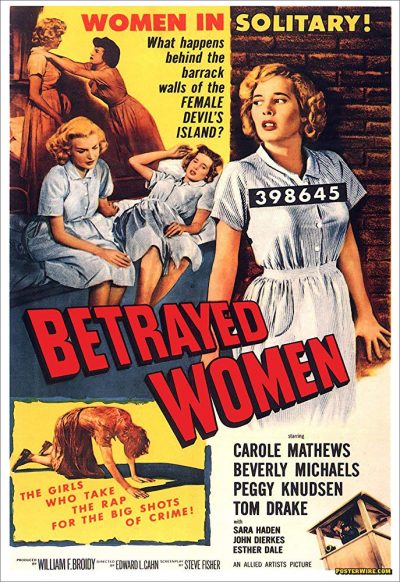★★½
“For flock’s sake…”
 Or, to give this its full, rather misguided name: Birds of Prey (and the Fantabulous Emancipation of One Harley Quinn). I am not convinced that films are improved by giving them gimmick titles including made-up words. It smacks rather of desperation on the part of the makers. Though this is… alright. It did not actively annoy me in quite the same way Captain Marvel did, but it is still disappointing. Robbie’s Harley Quinn was easily the best thing about Suicide Squad. She’s also the best thing about this, but it feels at a considerably lower level. All the edges seem to have been filed off, with Robbie (who produced this and came up with the idea) apparently intent on making her much more of a heroic figure than the barely-restrained psychopath I was hoping to see.
Or, to give this its full, rather misguided name: Birds of Prey (and the Fantabulous Emancipation of One Harley Quinn). I am not convinced that films are improved by giving them gimmick titles including made-up words. It smacks rather of desperation on the part of the makers. Though this is… alright. It did not actively annoy me in quite the same way Captain Marvel did, but it is still disappointing. Robbie’s Harley Quinn was easily the best thing about Suicide Squad. She’s also the best thing about this, but it feels at a considerably lower level. All the edges seem to have been filed off, with Robbie (who produced this and came up with the idea) apparently intent on making her much more of a heroic figure than the barely-restrained psychopath I was hoping to see.
The main problem, however, is over-stuffing of storylines, with so many threads being weaved in, that they all inevitably suffer as a result. Let’s enumerate them. There’s Harley, who breaks up with the Joker, only to discover his protection was the only thing which had been keeping her safe. Detective Renee Montoya (Perez), whose case-load includes investigating crossbow vigilante killings, mob boss Roman Sionis (McGregor) and Harley herself. Sionis’s singer-turned-driver Dinah Lance, a.k.a. Black Canary (Jurnee Smollett-Bell), who… Well, I’m really not sure what purpose she serves here. The crossbow killer is Helena Bertinelli, a.k.a. Huntress (Winstead), seeking vengeance for the death of her family. And Cassandra Cain (Ella Jay Basco), a young pickpocket who steals and eats a diamond containing coded information sought by Sionis.
None of these are adequately developed, even Harley’s. Her story is adequately and brightly sketched out in an animated opening sequence, and then gets scant service as the script tries to keep all its balls, sorry, ovaries in the air. For the feminist leanings are probably the most painful aspect. As depicted here, the “emancipation” of the title seems less about building women up, than tearing men down. Virtually without exception, every male character is more or less a bastard, from the obvious ones like Sionis’s sidekick with a fondness for face-peeling through to Montoya’s former partner who stole credit for her work. Even the kindly store-owner turns out to be happy to sell Harley out. Is this emancipation? To steal from The Princess Bride: “You keep using that word, I do not think it means what you think it means.”
Along those lines I was initially prepared to criticize Margot for pre-release statements, like it being “hugely important to find a female director for this.” However, that snippet is a bit misleading, since the full quote in context goes on, “…if possible. But at the end of the day — male, female — the best director gets the job and Cathy was the best director.” I’m fine with that. Though it has to be said, I’m not sure what made Yan the best, given her only feature before this was Dead Pigs, a comedy-drama about an incident where 16,000 deceased porcines were found in a Chinese river. But the direction here is serviceable enough: it doesn’t get in the way of Margot Robbie, which may be what the star wanted all along.
 The action is a bit of a mixed bag. There are a couple of very good brawls for Harley, most notably one in a police evidence warehouse (even if the cops seem curiously unwilling to draw and use their firearms. What is this, the United Kingdom?) where Robbie and her stunt doubles get to showcase some stellar moves. But the final fight has much the same problem as the plot in general. In trying to make sure each of the four fighting leads get their chance to shine (Cassandra basically cowers in a corner for the duration of it), the climax basically succeeds in selling all of them short. There is quite a nice “funhouse” atmosphere there, since it takes place in an abandoned amusement park, though it feels like some of the potential wasn’t fully developed.
The action is a bit of a mixed bag. There are a couple of very good brawls for Harley, most notably one in a police evidence warehouse (even if the cops seem curiously unwilling to draw and use their firearms. What is this, the United Kingdom?) where Robbie and her stunt doubles get to showcase some stellar moves. But the final fight has much the same problem as the plot in general. In trying to make sure each of the four fighting leads get their chance to shine (Cassandra basically cowers in a corner for the duration of it), the climax basically succeeds in selling all of them short. There is quite a nice “funhouse” atmosphere there, since it takes place in an abandoned amusement park, though it feels like some of the potential wasn’t fully developed.
It does seem to draw some inspiration from Leon, in the relationship between Harley and Cassandra, which is not dissimilar to the one between Leon and Matilda. In both, the adult is forced to tap into a previously unknown nurturing side after a young girl is dropped into their care, though they are hardly the ideal parent. But probably the most obvious nod is at the end, where Cassandra pulls a very similar “ring trick” to the one which takes care of Stansfield at the end of Leon. As soon as she said it, I figured out what Cassandra meant, before Harley did. However, this maternal element does play into the softening of Harley, one of the disappointing aspects. Given the freedom of an R-rating. I’d have expected a bit more in the way of mature content than a potty mouth and some intermittently brutal violence. At times, it feels more like Robbie is cosplaying Harley, rather than playing her.
Robbie’s avowed aim was to make a “girl gang” pic, perhaps inspired by things like Switchblade Sisters, Faster Pussycat or the pinky violence genre. But what she didn’t bring from them, is that those all had strong leadership. There was no doubt that Tura Satana or Meiko Kaji were the stars: the films accordingly orbited around them and their fabulous screen presence. Her previous movies have shown us, Robbie can deliver that, which makes it all the more of a shame that she abdicated the throne here. Sadly, this ends up closer to an episode from the last series of Doctor Who, with its “very flat team structure.” Or to borrow from Monty Python and the Holy Grail, an anarcho-syndicalist commune where Harley and her pals take it in turns to act as a sort of executive officer for the week. Maybe the title, with its supposed heroine relegated to the tenth and eleventh words, was accurate after all.
Dir: Cathy Yan
Star: Margot Robbie, Ewan McGregor, Mary Elizabeth Winstead, Rosie Perez
 You could skip the first 30-45 minutes of this, and it really would not affect your enjoyment level significantly. It seems to be one of those cases where the director is far more in love with the dialogue and characters than they deserves, and so we have to sit through far too much flapping of jaws by the latter, delivering the former in inane and uninteresting conversation, before we get to the meat of the story. Which is, as follows.
You could skip the first 30-45 minutes of this, and it really would not affect your enjoyment level significantly. It seems to be one of those cases where the director is far more in love with the dialogue and characters than they deserves, and so we have to sit through far too much flapping of jaws by the latter, delivering the former in inane and uninteresting conversation, before we get to the meat of the story. Which is, as follows.




 Or, to give this its full, rather misguided name: Birds of Prey (and the Fantabulous Emancipation of One Harley Quinn). I am not convinced that films are improved by giving them gimmick titles including made-up words. It smacks rather of desperation on the part of the makers. Though this is… alright. It did not actively annoy me in quite the same way
Or, to give this its full, rather misguided name: Birds of Prey (and the Fantabulous Emancipation of One Harley Quinn). I am not convinced that films are improved by giving them gimmick titles including made-up words. It smacks rather of desperation on the part of the makers. Though this is… alright. It did not actively annoy me in quite the same way  The action is a bit of a mixed bag. There are a couple of very good brawls for Harley, most notably one in a police evidence warehouse (even if the cops seem curiously unwilling to draw and use their firearms. What is this, the United Kingdom?) where Robbie and her stunt doubles get to showcase some stellar moves. But the final fight has much the same problem as the plot in general. In trying to make sure each of the four fighting leads get their chance to shine (Cassandra basically cowers in a corner for the duration of it), the climax basically succeeds in selling all of them short. There is quite a nice “funhouse” atmosphere there, since it takes place in an abandoned amusement park, though it feels like some of the potential wasn’t fully developed.
The action is a bit of a mixed bag. There are a couple of very good brawls for Harley, most notably one in a police evidence warehouse (even if the cops seem curiously unwilling to draw and use their firearms. What is this, the United Kingdom?) where Robbie and her stunt doubles get to showcase some stellar moves. But the final fight has much the same problem as the plot in general. In trying to make sure each of the four fighting leads get their chance to shine (Cassandra basically cowers in a corner for the duration of it), the climax basically succeeds in selling all of them short. There is quite a nice “funhouse” atmosphere there, since it takes place in an abandoned amusement park, though it feels like some of the potential wasn’t fully developed.























 Proving not quite able to sustain its running time, this ends up collapsing under its own weight. The lead actress tries her best, and her character is likeable enough, but in her debut leading a feature, isn’t able to carry a film in which she is in virtually every scene. Fontes plays park ranger Wendy, whose duties are typically limited to handing out leaflets and lecturing small children about the dangers of forest fires. To help out a colleague, she takes on a more strenuous task, only to find herself lost in the great outdoors, as darkness approaches. She then stumbles across a body at the foot of a cliff: was it death by misadventure, or something more malicious?
Proving not quite able to sustain its running time, this ends up collapsing under its own weight. The lead actress tries her best, and her character is likeable enough, but in her debut leading a feature, isn’t able to carry a film in which she is in virtually every scene. Fontes plays park ranger Wendy, whose duties are typically limited to handing out leaflets and lecturing small children about the dangers of forest fires. To help out a colleague, she takes on a more strenuous task, only to find herself lost in the great outdoors, as darkness approaches. She then stumbles across a body at the foot of a cliff: was it death by misadventure, or something more malicious? A solid enough entry in the Jap-splat genre, this benefits mostly from a winning central performance from Uchida as the title character, Giko Nokomura. Her family are in the demolition business, which is at least a token gesture towards explaining the F-sized chainsaw she carries everywhere – initially in a guitar case! She’s a bit of a delinquent, harking back to the sukeban movies of the sixties like
A solid enough entry in the Jap-splat genre, this benefits mostly from a winning central performance from Uchida as the title character, Giko Nokomura. Her family are in the demolition business, which is at least a token gesture towards explaining the F-sized chainsaw she carries everywhere – initially in a guitar case! She’s a bit of a delinquent, harking back to the sukeban movies of the sixties like  Erica (Kriis) is an attractive con-artist, who seduces married men in hotels, then drugs and robs them, knowing they’ll never be able to report the crime. She has just brought on an apprentice, Lauren (Patrikios), to learn the dubious trade, watch her back, etc. Their next score turns out to be the jackpot. as they discover the target was carrying a stash of diamonds with a seven-figure value. Absconding with their ill-gotten gains, the pair decide to lay low for a while, and head to Erica’s hideout on the holiday destination of Isabelle Island. They’re disturbed to read news reports that the target turned up dead in the room, and it quickly appears that the owner of the diamonds is closing in on them. But who is the threat? Local policeman, Mike (McCullough), for whom Lauren has a thing? Visiting boat-owner and part-time magician Tom (Berdini), with whom Erica has a fling? Or the creepy bald guy who arrives on the island and appears to be stalking Erica?
Erica (Kriis) is an attractive con-artist, who seduces married men in hotels, then drugs and robs them, knowing they’ll never be able to report the crime. She has just brought on an apprentice, Lauren (Patrikios), to learn the dubious trade, watch her back, etc. Their next score turns out to be the jackpot. as they discover the target was carrying a stash of diamonds with a seven-figure value. Absconding with their ill-gotten gains, the pair decide to lay low for a while, and head to Erica’s hideout on the holiday destination of Isabelle Island. They’re disturbed to read news reports that the target turned up dead in the room, and it quickly appears that the owner of the diamonds is closing in on them. But who is the threat? Local policeman, Mike (McCullough), for whom Lauren has a thing? Visiting boat-owner and part-time magician Tom (Berdini), with whom Erica has a fling? Or the creepy bald guy who arrives on the island and appears to be stalking Erica? Seventeen-year-old Sarah Fairchild and her family have become persona non grata after her father’s execution by the Algardis Empire. He was a renowned fighter and commander, so his alleged desertion makes no sense to Sarah. Regardless, his wife and daughter are now pariahs to the local community. Even with Sarah’s unparalleled fighting skills, both natural and magical, her employment opportunities are limited, to say the least.
Seventeen-year-old Sarah Fairchild and her family have become persona non grata after her father’s execution by the Algardis Empire. He was a renowned fighter and commander, so his alleged desertion makes no sense to Sarah. Regardless, his wife and daughter are now pariahs to the local community. Even with Sarah’s unparalleled fighting skills, both natural and magical, her employment opportunities are limited, to say the least. Wannabe actress Rosa (de Armas) is on the way home from her job as a hotel maid when she gets a message telling her she has a call-back the next day for a final audition. With her washing machine broken, she pops into the local 24-hour laundromat to get her costume all spick and span. It and the surrounding streets are completely deserted, and it’s not long before she’s being menaced by the kind of hulking, silent figure only found in horror movies like this. She’s delighted when hunky co-launderer Gabriel (Cadavid) shows up to rescue her, despite his strange tastes in music. But is he really as nice as he seems?
Wannabe actress Rosa (de Armas) is on the way home from her job as a hotel maid when she gets a message telling her she has a call-back the next day for a final audition. With her washing machine broken, she pops into the local 24-hour laundromat to get her costume all spick and span. It and the surrounding streets are completely deserted, and it’s not long before she’s being menaced by the kind of hulking, silent figure only found in horror movies like this. She’s delighted when hunky co-launderer Gabriel (Cadavid) shows up to rescue her, despite his strange tastes in music. But is he really as nice as he seems? First, let me just say: that poster is a true work of art. Seriously, how can anyone look at that and
First, let me just say: that poster is a true work of art. Seriously, how can anyone look at that and  There is entertainment value to be found even in bad movies. Bad action, horror and SF are sometimes just as amusing as the good stuff. But bad comedy is almost irredeemable: that’s why Mystery Science Theater 3000 rarely go there. Bad comedy just… sits there, dull and unamusing, almost worthless. And that’s what we have here. It’s a somewhat interesting idea, with some potential. Unfortunately, the execution – mostly in the script and direction – are so woefully inept that even the brave efforts of Florence Henderson, in her final film, aren’t enough to salvage it. And wasting the talents of Pam Grier needs to be some kind of cinematic capital offense.
There is entertainment value to be found even in bad movies. Bad action, horror and SF are sometimes just as amusing as the good stuff. But bad comedy is almost irredeemable: that’s why Mystery Science Theater 3000 rarely go there. Bad comedy just… sits there, dull and unamusing, almost worthless. And that’s what we have here. It’s a somewhat interesting idea, with some potential. Unfortunately, the execution – mostly in the script and direction – are so woefully inept that even the brave efforts of Florence Henderson, in her final film, aren’t enough to salvage it. And wasting the talents of Pam Grier needs to be some kind of cinematic capital offense. Akemi Tachibana (Kaji) is second in command of her yakuza gang. During a battle with another group, she accidentally blinds Aiko Gouda (Tokuda), the sister of an enemy – an incident Akemi believes leaves her cursed, after a black cat laps up the blood spilled as a result. Following three years in jail, she returns to find the clan on the verge of war against their rivals, the Dobashi group. Various members of the Tachibanas are turning up dead, and with their tattoos flayed off. Turns out that Gouda has joined the Dobashi gang, with the aim of extracting vengeance on the woman who took her sight, even though Akemi has borne the guilt of that event ever since.
Akemi Tachibana (Kaji) is second in command of her yakuza gang. During a battle with another group, she accidentally blinds Aiko Gouda (Tokuda), the sister of an enemy – an incident Akemi believes leaves her cursed, after a black cat laps up the blood spilled as a result. Following three years in jail, she returns to find the clan on the verge of war against their rivals, the Dobashi group. Various members of the Tachibanas are turning up dead, and with their tattoos flayed off. Turns out that Gouda has joined the Dobashi gang, with the aim of extracting vengeance on the woman who took her sight, even though Akemi has borne the guilt of that event ever since.